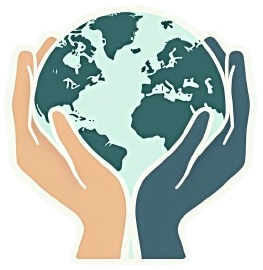A New Model of Work and Life
Minimal Workweek
The modern economy forces people to work 40–60 hours a week, creating a dependency on labor for survival. In the new system, work becomes a choice rather than a necessity, and the number of working hours is reduced to a minimum.
How it works:
The workweek is reduced to 3–4 days of 3–4 hours, allowing people to dedicate more time to self-development, creativity, and family.
Automation of most routine tasks—intelligent systems and robots take over heavy, monotonous, and dangerous labor.
Flexible employment system—everyone can work at a convenient time, without adhering to fixed schedules.
Conclusion:
Work ceases to be a tool for survival and becomes a means of self-realization, giving people more freedom for creativity, rest, and personal development.
How it works:
The workweek is reduced to 3–4 days of 3–4 hours, allowing people to dedicate more time to self-development, creativity, and family.
Automation of most routine tasks—intelligent systems and robots take over heavy, monotonous, and dangerous labor.
Flexible employment system—everyone can work at a convenient time, without adhering to fixed schedules.
Conclusion:
Work ceases to be a tool for survival and becomes a means of self-realization, giving people more freedom for creativity, rest, and personal development.
Additional Bonuses for Contributing to Society
Today’s society is built on forced labor rather than rewarding beneficial activities. In the new system, people who contribute to societal development receive additional privileges, encouraging voluntary participation in meaningful projects.
How it works:
Those who work or create community projects receive improved living conditions, access to travel, education, and additional resources.
Instead of salaries—a bonus system where a person’s contribution is evaluated based on its benefit to society, not corporate standards.
Everyone decides how much they want to work, without the threat of losing housing, food, or healthcare.
Conclusion:
People work not out of fear of poverty, but because it brings them joy, growth, and additional opportunities.
How it works:
Those who work or create community projects receive improved living conditions, access to travel, education, and additional resources.
Instead of salaries—a bonus system where a person’s contribution is evaluated based on its benefit to society, not corporate standards.
Everyone decides how much they want to work, without the threat of losing housing, food, or healthcare.
Conclusion:
People work not out of fear of poverty, but because it brings them joy, growth, and additional opportunities.
Basic Provision for All
Today, millions of people live below the poverty line, lacking access to food, water, healthcare, and housing. In the new system, every person receives all basic necessities for free.
How it works:
Housing, food, water, healthcare, and internet are guaranteed rights for every individual.
Resources are distributed based on real needs, not purchasing power.
A global system of sustainable supply prevents resource shortages, eliminating poverty and homelessness.
Conclusion:
No one suffers from hunger, lack of water, or homelessness anymore, and society progresses without the fear of poverty and inequality.
How it works:
Housing, food, water, healthcare, and internet are guaranteed rights for every individual.
Resources are distributed based on real needs, not purchasing power.
A global system of sustainable supply prevents resource shortages, eliminating poverty and homelessness.
Conclusion:
No one suffers from hunger, lack of water, or homelessness anymore, and society progresses without the fear of poverty and inequality.
